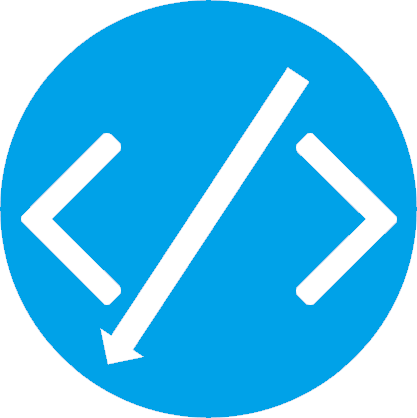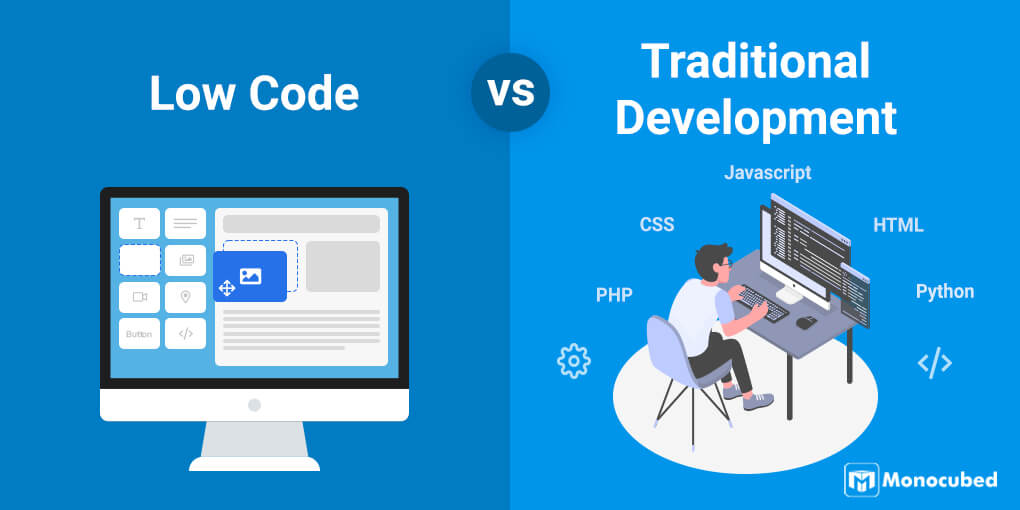Top Tips To Selecting application development with Low-code platforms
Wiki Article
The Advantages Of Low-Code Development For Application Development In Relation To Pertains To Integration Capabilities
Low-code applications provide significant advantages in terms of integration which is essential when creating applications that are able to seamlessly connect different systems and services. Here are key benefits from pre-built connectors, APIs, and other tools:
A Wide Range of Connectors : Low-code platforms typically come with a vast library of pre-built connectors to common enterprise software (e.g. ERP CRM, databases, and cloud services). This allows for easier integration with systems.
API Integration: A lot of low code platforms come with integrated APIs that are built-in that let developers easily connect to external services and sources of data.
Simple to use:
Drag-and--Drop integration: Integration tasks are often completed using drag and drop interfaces. Developers and non-developers can create complex integrated systems without writing code.
Visual Workflow Builders Visual tools to create workflows and data flow aid in understanding and establishing integrations more easily.
Standardized Integration Methods:
SOAP/RESTful Services Support: Standard web service protocols, like SOAP/REST allow for the easy integration of a range of external applications and systems.
OData and other Standards Support for standards like OData facilitates the access and manipulation of data across different platforms and applications.
Real-Time Data Synchronization:
Real-Time Integrations: Low-code platforms are able to handle real-time synchronization between data systems, applications as well as databases. This will ensure that data is up-to-date and consistent throughout an organization.
Event-Driven Architecture: A few platforms can support event-driven architectures. permitting applications to respond to events in real time, which is essential for dynamic and interactive applications.
Legacy System Integration:
Bridging Old Systems and New Systems Low-code platform often provides the tools needed to integrate with legacy systems. This allows companies to modernize their IT Infrastructure without overhauling the existing systems.
Data Migration Tools: The built-in instruments for data migration make it easier to transfer of old systems to software developed using low-code platforms.
Third-Party Integration of Services:
Cloud Services: Integration with cloud services like AWS Azure and Google Cloud allows easy deployment and scaling.
Business Integration of Applications: Low code platforms can be integrated with various business applications like Salesforce, SAP and Microsoft Dynamics. This allows for a seamless workflow between different business tasks.
Simplified Data Processing
Unified Data Models: Certain lowcode platforms have unified coding models which simplify managing data, integration and synchronization across various platforms.
Data Connectors: Data connectors that are pre-configured to allow easy access to and manipulation of data from diverse sources.
Security and Compliance
Secure Integrations: Low-code platforms ensure that integrations conform to security protocols and standard, protecting data during transport as well as at rest.
Compliance Features - These platforms have features to ensure that integrations are compatible to regulatory standards.
Extensibility:
Custom Codes and Scripts. To meet more intricate requirements for integration, low-code platforms typically allows for the integration of custom scripts and code. This gives flexibility but without compromising user comfort.
Plug-in Ecosystems. A network of extensions and plug-ins will allow you to further enhance the integration abilities, adding additional functions as needed.
Overall, the integration capabilities of low-code applications development platforms make them an excellent device for building interconnected, efficient and scalable applications. They simplify the process of connecting disparate systems, enhance data flow, and enable enterprises to use existing technologies while adopting new ones, which results in the integration of a seamless IT environment. View the top rated Low-code Platform for application development info for blog advice including developing mobile apps, develop cross platform mobile app, azure sql databases, push notifications, rapid action development, app development platform, rad application development, app platforms, rapid application design, cloud software applications and more.

Low-Code App Development Has Many Benefits In Terms Of Cost-Effectiveness
Low-code development offers many advantages in terms of cost efficiency. This makes it an ideal choice for companies who want to optimize their development budgets, but providing high-quality applications. These are the main benefits:
Lower Coding Requirements Low-code platforms eliminate the requirement for a lot of hand-coding, which reduces the time and effort that developers must to invest in developing their applications. It also means lower cost of labor.
We require fewer resources for developers. Programming low-code is more efficient and quicker, so there are fewer developers who have specialized knowledge are needed. Costs for hiring and staffing can be drastically reduced.
More Time to Market:
Accelerated Development Cycle: Visual tools for low-code platforms and components facilitate rapid application creation, which allows companies to launch their new products quicker. This could lead to quicker revenue generation and better positioning in the market.
Rapid prototyping. Businesses can rapidly test and create prototypes. This reduces time spent during the development phase, and enables rapid iterations based on feedback from users.
Lower Maintenance Costs:
The modular structure and standard components of apps developed using low-code platforms makes them simpler to maintain. This can reduce the expense of maintenance and support.
Automated Updates. Many low-code platform handle updates and patches automatically. Applications remain safe without the need for extensive manual input.
Efficient Resource Utilization:
Low-code platform contributions let businesses as well as other non-developers to participate in the process of creating. This democratization of development allows businesses to leverage the skills of a wider range of employees, thus reducing dependence on high-paying developers.
IT Departments can Focus on Strategic Initiatives instead, of being bogged down by routine work, IT departments can concentrate their energies on strategic initiatives to increase productivity and efficiency.
Pricing models that can be scaled:
Subscription-Based Pricing: A lot of low code platforms offer flexible subscription-based pricing that scales depending on use. This allows businesses to make sure that their budget is in line with their real needs and growth.
Pay-Asyou-Go Options - Some platforms allow companies to pay for only the amount they spend. This is especially beneficial for startups or small businesses with a limited budget.
Reduced Third-Party Software Costs:
Built-in Functionalities : Low-code platforms usually comes with built-in functionality and integrations, which eliminates the requirement for additional third-party tools, software and licenses.
Pre-Built Intergrations: The availability and pre-built integrations for popular systems and services reduces the requirement for custom development and can save time and money.
Improved ROI:
Faster return on Investment (ROI) by combining rapid application development with lower costs and a shorter time to the market, businesses can achieve a faster ROI for their apps.
Enhanced Ability. Businesses are able to quickly adjust to market changes and customer requirements to ensure they are relevant. They also can take advantage of new business opportunities that come up.
Reduced Cost of Training
User-Friendly interfaces: Low-code platforms offer user-friendly and intuitive interfaces that reduce the time required to learn. They also minimize the need for lengthy courses of instruction.
Accessible Resources A lot of low-code platforms provide extensive instructional materials, tutorials and community support, further lessening the need for formal training and the associated expenses.
Collaboration can be made easier.
Enhance Collaboration Tool: The built-in collaboration tool helps improve collaboration and communication among team members. This leads to faster development processes and decreases the project's overhead.
Unified Development Environment: A single unifying development environment can help improve workflows and reduces complexities and costs associated with managing multiple platforms and tools.
Overall, the cost-effectiveness of developing low-code applications stems in its ability to lower the cost of development and maintenance, accelerate the time to market, improve utilization of resources, as well as provide flexible pricing models. These aspects provide significant economic benefits to businesses and make low-code a compelling option for organizations who want to make the most of their budgets and achieve robust, scalable, high-quality apps. View the top Legacy application modernization with Low-code blog for site advice including azure sql, cross platform app development, rapid applications, driver jdbc, cross platform app dev, app dev platform, no code platforms, cross platform mobile development, application modernization, cross platform app dev and more.

Benefits Of Low-Code App Development In Terms Of Limitations And Customization
Low-code applications offer an integrated approach that offers significant advantages in terms of solving limitations and allowing modification. Here are some of the major advantages: Handling limitations
Removing Complexity Barriers
Low-code platforms facilitate development by providing pre-built templates and other components. This allows rapid deployment and development of complicated applications.
Guided Workflows: Many platforms offer guided workflows and wizards to help developers navigate through the maze of processes, decreasing the likelihood of errors and making sure that the process is consistent.
Solutions to scale:
Built-in Scalability: Low code platforms have many features that support an architectural design that is scalable, allowing the applications to handle increased loads without major redevelopment.
Performance Monitoring Performance Monitoring Tools: Integrated performance monitoring tools and optimization make sure that applications are as efficient as they can be, regardless of their scale.
Security and compliance
Security features integrated into low-code platforms have security measures such as encryption as well as role-based access control, and automated compliance checking, which address common security concerns.
Platforms regularly update their security protocols and ensure compliance with regulatory requirements. This helps keep platforms safe from new threats.
Options for Customization:
Extensibility:
Custom Code Integration: Low-code platforms typically permit the integration of custom codes (e.g., JavaScript, Python), enabling developers to expand the capabilities beyond the basic features.
Modifications and plugins that are custom Developers are able to create custom modules or plugins to add specific functionalities tailored to the specific requirements of a particular business.
APIs Integration:
API Support. A comprehensive API support allows seamless integration with external systems and services, allowing extensive customization and connection.
Third-Party Applications: Lowcode platforms are often pre-built with connectors for third-party applications, which makes it easier to integrate them and personalize the application.
Flexible Design for UI/UX:
Customizable user interfaces: Developers are able to modify and design user interfaces so that they satisfy specific branding requirements and usability needs, providing the user with a customized experience.
Responsive Web Design Responsive Web Design: Built-in design responsive capabilities allow applications to be customized in accordance with the screen size and device.
Custom Business Logic for Businesses:
Visual Workflow Designers: These visual tools can be used to customize and create workflows, as well as business logic, allowing programmers to design complex processes that are tailored for their needs.
Conditional Logic and scripting: Platforms allow the integration of conditional logic and custom scripting to handle specific business rules and scenarios.
Data Management:
Custom Data Models: Developers have the option to develop custom data models for specific applications, and tailoring the handling of data to meet specific business needs.
Advanced Data Processing Integration advanced tools for data handling allow for the customisation of data analysis and use within the application.
How do you balance customization with restrictions:
Frameworks and Standards:
Best Practices: Low-code platform promotes conformity to industry standards and best practices. This can be helpful to ensure high-quality, scalable and secured applications.
Governance Frameworks: Integrated governance frameworks make sure that customizations don't compromise the integrity, compliance, or security of the application.
Iterative Development & Feedback
Rapid prototyping: By being in a position to quickly prototype and test modifications developers can improve upon user feedback to improve the application.
Continuous Improvement: Platforms with low-code enable continuous improvement which allow for customization and improvement as business needs change.
User Empowerment:
Low-code platforms allow citizen developers to develop through letting non-developers with intuitive interfaces, to personalize applications, they expand the pool contributors that can improve and customize apps.
Support and Training Information: Many platforms offer comprehensive training and support materials that allow users to modify applications without compromising their stability or performance.
Overall, application development that is low-code gives a strong framework to overcome limitations and offers a wide range of possibilities to personalize. This balance ensures businesses can create and maintain applications that are customized and functional to meet their specific needs, while ensuring high standards of security, quality and scaling.
